It is a muggy day. You walk up to your car and start it. It blows hot air onto your face. How annoying is that? This is when the freon cost springs up into your mind.
Freon is the refrigerant that keeps the air flowing from our car air conditioning system cool and comfortable. If you run short of Freon, your air conditioning system may not blow cool air. Instead, you will be welcomed with dry, warm air that is in no way ideal for a relaxed drive, unless you are driving in winter. But that is a different story.
Here, we will focus on what Freon does in your vehicle’s air conditioning system. Specifically, we will zoom in on the freon cost, which you will have to pay if you must replace the same. So, is freon cost a regular, manageable expense or a bank-breaker. Let us find out.
What is Freon?
As we know, Freon is a refrigerant gas used in air conditioning and refrigeration systems. Specifically speaking, Freon is a CFC or a Chlorofluorocarbon. These CFCs are gases that contain only Carbon, Chlorine, and Fluorine. While CFC or Chlorofluorocarbon is the chemical name for a group of gases, freon is not.
The name freon is trademarked by a firm called DuPont, a chemical industry player from the United States. This firm, along with General Motors, produced Freon in 1930. The chemical name for this gas is dichlorofluoromethane. In the industry, it also goes by the names Freon-12, CFC-12, or R-12.
History Of Freon-based Air Conditioning Systems
Freon rose into popularity back in the 1950s when air conditioning started becoming a popular luxury addition to many cars. The ‘fifties was the time most manufacturers started offering air conditioning systems in their vehicles.
But even though the ‘fifties was the time the popularity sore, this was not the genesis of the vehicle air conditioning system. Rolling back a couple of decades, the air conditioning system was first offered in a car by Packard, in 1939. The system was made by a company called Bishop and Babcock Co. This was quite popular, but Packard had to pull the plug on it by 1941 due to the unreliable nature of the system.
This is when the Freon based systems came into the picture. Since then, air conditioning systems have become an integral part of vehicle ownership. Freon or R-12 has been a major contributor to this trend. So was the freon cost of replacement. But this all changed later into the 1980s when R-12 fell in favor of a newer compound.
Fall Of Freon
The Freon or R-12 was enjoying the peak of its popularity from the 1950s to the 1970s. But things were soon to go south for it.
From the 1970s, voices rose against the use of refrigerant, as it was found to have adverse effects on the environment. Freon got its bad rap from the fact that it has a highly detrimental effect on the ozone layer. Yep, the very layer that shields us from harmful UV radiation. This cannot be good.
To make matters worse, freon or R-12 was also a greenhouse gas, with high global warming potential. Combining these, any practical benefit of the R-12 went to the pointless zone. Though people loved the relatively low freon cost, and its ease of application, companies, and governments did not.
The consistent strides taken by global organizations and governments to clean up the environment were picking up steam. Hence, this was the collection of nails that kept the coffin for the R-12 shut.
From the 1980s, car manufacturers started fettling with another type of refrigerants. This was in a bid to prepare for the imminent regulation changes that will ban the use of R-12. Experts touted another compound called R-134a as a replacement for R-12. This compound is called Puron.
Most manufacturers switched to the new R-134a by 1994 when the government-mandated it. It worked for them to prepare in advance as the move was relatively seamless. The chemical name for this compound is tetrafluoroethylene. For organic chemistry nerds among us, the chemical formula is CH2FCF3. To date, most vehicles use this new compound but even this is no good news.
Alternatives To R-134a
The R-134a is also found to contribute its share to the greenhouse effect as well. Yet, the R-134a does not display R-12’s degrading effect on the ozone layer. Even then, manufacturers are finding safer, greener alternatives to the same.
Newer refrigerants like R-1234yf, R-152a, and R-744 are used as replacements for R-134a. So, if you are here for knowing the freon cost (and how to check freon in car), you may be having an older vehicle as they are the only ones using the freon R-12. So, before you dive in, you need to know which refrigerant is being used by your vehicle’s air conditioning system.
If you run an older model, especially before 1994, it likely uses R-12. But if you have a model made later than 1994, it will possibly be R-134a. Unless it is a brand new 2020, 2021, or 2022 model vehicle, which may have one of the newer refrigerants. So, to calculate freon cost, your owner’s manual is your best source of information.
What Role Does Freon Play In Air Conditioning?
Freon, as we know is the refrigerant that cools down the ambient air before it flows into the cabin. The freon flows through the air conditioning system, shuffling between gaseous and liquid states.
The compressor of the air conditioning system compresses the refrigerant from a low-pressure gas to a high-pressure, high-temperature gas. This is then moved to the condenser which reduces the temperature of the gas while preserving the high pressure.
The expansion valve drastically drops the temperature of the high-pressure refrigerant, converting it into a gas in the process. This is then fed into the evaporator. In the evaporator, the refrigerant cools down the flowing ambient air before it enters the cabin. During this process, the freon turns into a low-pressure gas that goes back into the compressor to repeat the process.
Freon cost becomes increasingly important when we understand this key role that it plays. It is more like blood to the air conditioning system of a car. Without freon in it, the air conditioning system is just a useless heap of plastic, rubber, and metal.
The freon cost is important when it comes to replenishing the freon in the air conditioning system.
How Much Does The Freon Cost?
Depending on the age of your vehicle, the cost can vary, as freon cost is high for older cars. This is because the R-12 freon used in these cars is hard to come by. Workshops being less and less skilled in recharging older freon-based HVAC systems do not help either.
In newer cars, the R-134a refrigerant is easier and cheaper to source and replenish. And even newer systems are even easier. So, if you have a classic car with an R-12 Freon-based system, you may be in for an inconvenient procedure. And of course, higher freon cost.
Just like every mechanical repair procedure, the freon cost and recharging of the AC can vary from place to place. The freon cost is not the only component here. It also adds to the cost of labor, as it requires special machinery.
This is of course the cheapest when you conduct the recharging at your local garage. Combining both freon cost and the labor cost, you can expect to wave goodbye to around $167 to $275.
In larger chain stores like Midas, NAPA, and Mr.Tire, the freon cost can go higher, along with the labor cost. So, you can expect to shell out around a little bit more. These may also offer you a higher warranty as well.
If you are adventurous and are opting for DIY repair, buying the freon yourself is the best bet. But, if your car uses an older R-12 freon, it will be extremely hard to find the same. We recommend that you convert the system to use R-134a if you are keeping the vehicle for long.
Freon cost can vary from $40-$150 if you are buying from Walmart. It can cost you anywhere between $35-$180 at Amazon. The significant difference in freon cost depends on how much freon is needed to recharge your vehicle (or if you want to learn how to charge AC system).
What Does This Freon Cost Give You?
Now, we have discussed the freon cost needed to recharge your AC. But what do you get for this? Let us have a look at what happens during your vehicle’s AC recharge (if you want to learn more about how to recharge AC and how to recharge AC in car).
Garages and dealerships with dedicated machinery usually carry out the procedure of recharging an AC. DIY fixes are available, but we do not recommend them unless you know your way around a car’s mechanicals with your eyes closed.
The shops hook up a machine to the car, which removes the existing freon. The machine then puts the system under a vacuum to ensure that there are no leaks. If there are any leaks, the HVAC system will not be able to hold on to the vacuum.
If a leak is spotted, the mechanic will go about repairing the same before the new refrigerant is pumped in. This can explain why your car air conditioner is not cold. Once it is all cleared for leaks, the machine adds
When To Worry About Freon Cost?
As the air conditioning system of a car is a closed-loop system and there is no consumption of freon involved in the process, it does not get depleted as such. But, the hoses, links, and everything else that constitutes the air conditioning system of a car sits inside the hot engine bay. This ends up degrading their materials, leading to leaks.
These can range in sizes from micro leaks that are hard to notice to large leaks that leave a noticeable puddle of freon under your parked car. All these increase freon cost considerably.
Freon cost becomes a relevant consideration when you notice a drop in the efficiency of the HVAC system. The leaks that develop in these vehicles can accelerate this process.
Hence, it is a good habit to have a check on the condition of your HVAC system if you have driven your vehicle for a few years. Your mechanic will be the best guide for you here. To keep your air conditioning system running in its top nick, recharging it after a while can go a long way.
The age of your vehicle also has a significant impact on the freon cost of recharging your AC. The possibility of leaks forming in the system increases as the vehicle racks up the miles. This has also something to do with the fact that regulations preferred one refrigerant over the other as time went by.
But how do you know when it is time to recharge your AC? To understand that we may have to look at a few possible symptoms that can hint at low freon.
Freon Cost – Symptoms That Asks For An AC Recharge
The air conditioning in your vehicle is a mechanical unit that needs regular maintenance. As we have seen, recharging it and the freon cost associated with it is one among them. The symptoms that can call for an AC recharge are the following.
1. Low Performance Of The AC
This is the most obvious of all the symptoms. Your air conditioning system’s primary job is to blow cool air onto your face. If your AC is not blowing cool air, it can be due to a low freon level. But that is not all though. There can be other issues that can trigger the AC to not blow chilly air.
Freon cost maybe the least of your worries if something else is wrong with it. But in a well-maintained vehicle, small leaks can occur and a low amount of freon can be the primary reason.
No matter how well you have taken care of your vehicle, a leak in the freon system is always possible. The age of your vehicle accelerates this process. So, if you are unable to eke out crisp, cool air from your AC vents, a freon cost may be on the way.
2. Bad Smell From Engine Bay
Any unusual smell (for more insight, check out our guide on how to get weed smell out of car and how to get the weed smell out of your car) from your vehicle’s engine bay can bring no good news. Large freon leaks can give out a strong smell. Freon usually smells like coolant and has a slightly sweet aroma.
If you experience something like this, your wallet is going to be lighter by the freon cost. But more importantly, these leaks can be toxic. Stop using the vehicle and contact your mechanic or dealership to get it all cleared up.
Yet another smell that can creep into the cabin is the smell of mildew. This can mean that you have mold in your system. Though not directly connected to freon cost, this also needs an AC recharge to clear out.
3. Unusual Sounds
The air conditioning system of your vehicle does make its sounds. But anything unusual can point to an abnormality, and more freon cost. If you hear rattling sounds from under your hood, it can mean that you may have lost your condenser, fan belt, or compressor. It may also be an issue that is holding up the air conditioner fan.
Any of the above-mentioned scenarios can end up needing an AC repair. This also means that it is an enjoyable time to recharge your AC, hence incurring freon costs.
4. Large Leaks
Understandably, this is the easiest way to know that there is a freon cost involved in the repair. Large leaks are rarer but not impossible.
If you notice a puddle under your dashboard, you have all the right to doubt a leak. Such a large leak will be accompanied by a drop in air conditioning performance. So, you are not going to miss it.
But if this happens, the wisest choice will be to get out of the cabin. Refrigerants can be toxic hence calling a garage immediately will not be a bad idea. An expert eye can spot the leak easily and deal with it safely. Not to mention, replenishing the system will incur a freon cost.
Other AC Maintenance
The air conditioning of a vehicle is a complex system. The freon recharge is just one of its usual maintenance procedures. Other small habits can keep your AC in its top nick. Following these instructions can prolong the life of your car AC.
1. Run Your AC In Defrost/Defog Mode
Running your AC in the defog mode for at least 10 minutes in a week can help maintain gas pressure. The fan speed must be the maximum at this point. This exercise can help the compressor run cleaner, remove any residual moisture from the system, and control the growth of mildew
2. Clean/Replace Cabin Air Filter
This goes without saying. The cabin air filter is an easily accessible part of the AC (which makes it easy to learn how to replace cabin air filter). It mostly sits under the dashboard, mostly at the passenger side. Cleaning the filter regularly can clear out debris from it, helping the air conditioning run smoothly.
The filter also needs replacement after a while. If you think it is time to replace, that is most likely the best time to replace. Make sure that you do not overshoot the replacement interval mentioned in the owner’s manual.
3. No Pre-Cooling
Many modern cars come with fancy features that enable you to precool your vehicle. You can achieve this by turning on your AC remotely via your smartphone, smartwatch, voice commands, and whatnot.
But in a heated-up car parked outside on a sweltering day, blasting the air conditioner will only deplete its health. The air conditioning works at its optimum power when the vehicle is being driven.
The moment you start driving the vehicle, vent out the stifling air by opening the sunroof, and opening the back windows with only the fan turned high. You can turn on the AC after a few minutes.
This takes a considerable load off the shoulders of your AC, hence giving it longevity.
4. Turn Off Rear AC When There Are No Rear Passengers
The rear AC of your vehicle keeps the rear seat occupants happy and cool. If the rear seats are occupied by no one, why spend your fuel and AC’s life on cooling the air over there.
If you are driving with just the front passenger, turn off the rear AC and turn on recirculate mode. This not only reduces the load on the air conditioning system but also increases fuel efficiency. Faster cooling will be a bonus.
5. Use AC In Its Coldest Setting
Okay, this is a little extreme. But, if you do not mind the lowest temperature, this can help you out. Air conditioning systems are the most efficient at their lowest setting.
If you set your AC to a higher temperature, it reheats the air flowing into the cabin. Hence, it adds more load to the system. So, if you want the most efficiency from the AC, set it to the lowest setting and adjust the fan for the best comfort.
Being attentive towards these small procedures can keep your AC running in its top form. It can save you money as well, in the form of reduced freon cost, labor cost, and higher fuel efficiency.
Car AC Recharge Facts:
- Recharging your car’s air conditioning system is an expected maintenance item for all vehicles with operational AC.
- A professional AC recharge can cost between $150 – $300 on average, depending on the make and model of your vehicle.
- It is recommended to perform an AC recharge service on a vehicle every 100,000 miles or so.
- DIY route of recharging your car’s AC can save money, but it requires proper research, guidance, and tools.
- Overcharging the AC system can lead to catastrophic failure and warm air delivery.
- The first sign of an AC compressor not functioning properly will be warmer airflow when the coolest setting is selected.
- Rapid leaks in the AC system are a cause for concern and require attention.
- Regular maintenance can help avoid costly repairs in the future while maintaining optimal cooling throughout the life of your vehicle.
- The most common refrigerant for newer model cars is R-134a, while newer vehicles now take a new generation of refrigerant, R-1234yf.
- Identifying the low-side delivery point for refrigerant and using a proper manifold gauge set is recommended for more accurate measurements of your vehicle’s AC system.
Freon Cost: Will It Make Your Wallet Lighter?
Though finding Freon R-12 is an arduous task. Getting a garage to carry out the recharging is also equally difficult as most of them have moved towards modern cars.
But you may have a classic car, and you may want to preserve it for many more years. In this case, going through this hassle is a choice that you will have to make.
Yes, freon costs can be higher than most other new refrigerants. Though it will not break your bank, it will be a clever idea to convert your vehicle to R-134a. Especially, if you intend to keep your vehicle for longer.
Freon cost is an expense that comes rarely if you maintain your vehicle well. So, the impact it can make on your wallet depends on how frequently it occurs. If it happens regularly, an R-134a conversion is the best bet for saving more eventually.

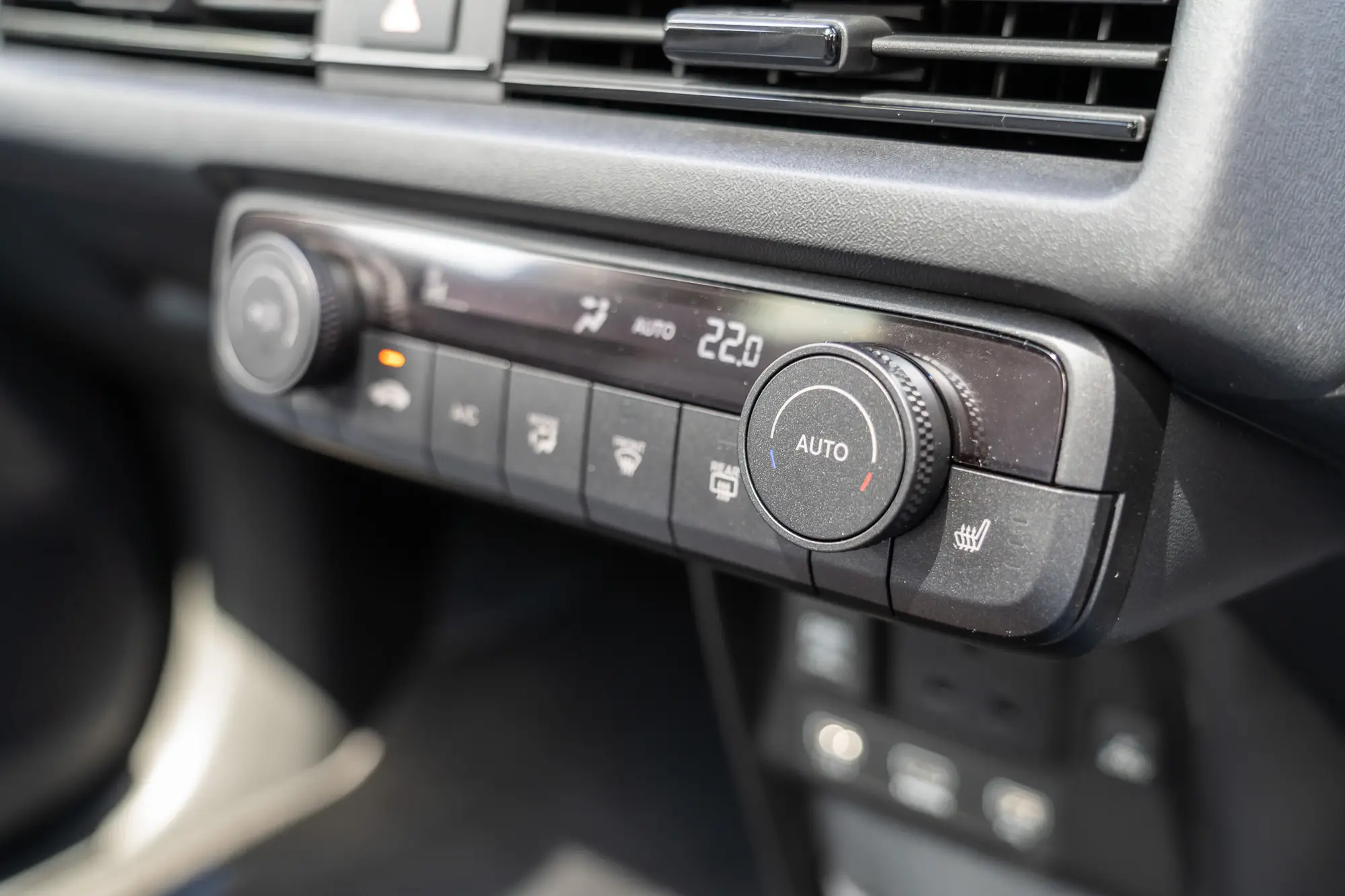
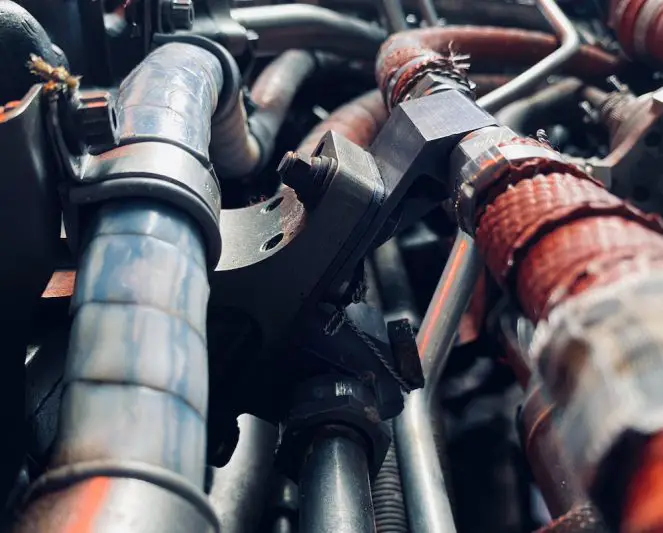
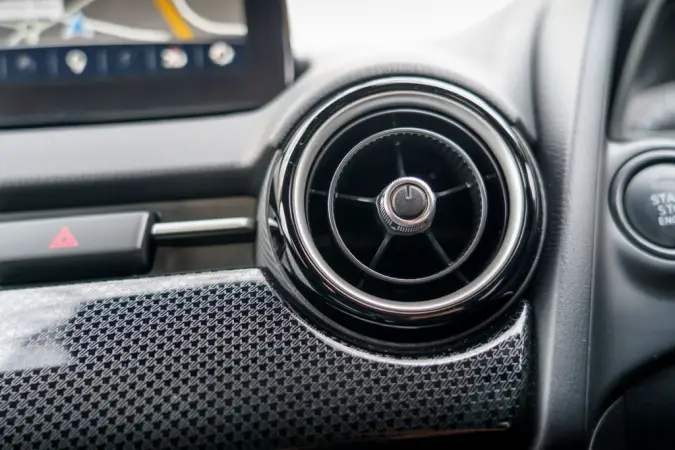
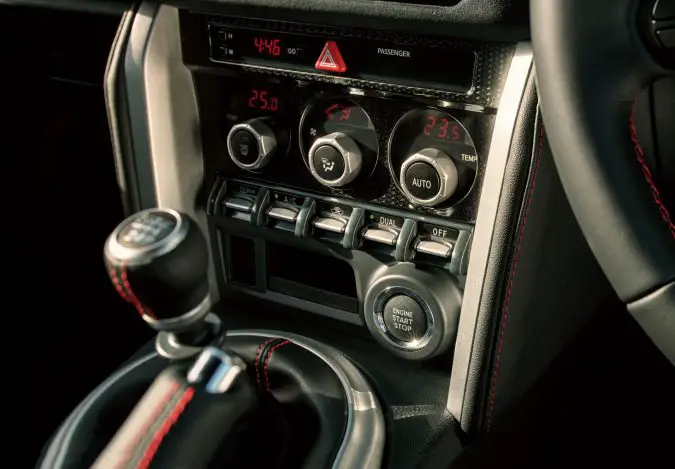

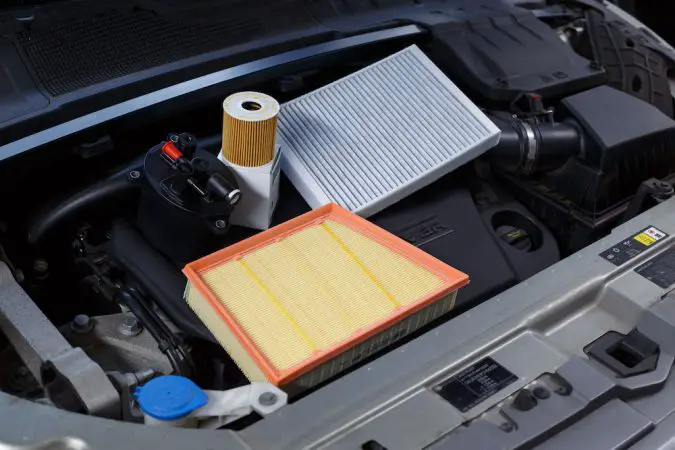
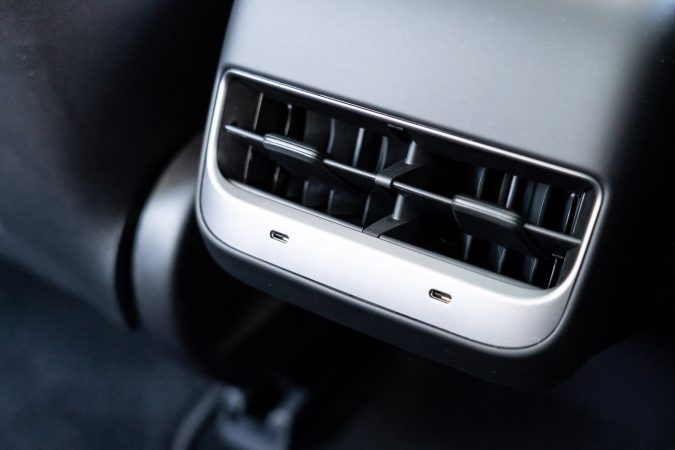
2 comments
It would be best to use r600a refrigerant in your car to spend less.
Thank you for your suggestion, Iqra. Using r600a refrigerant can indeed be a cost-effective option for car owners looking to spend less on an AC recharge. R600a, also known as isobutane, is a hydrocarbon refrigerant that is considered more environmentally friendly and energy-efficient compared to traditional refrigerants like Freon (R-134a).
However, it’s important to note that r600a is not compatible with all car AC systems. Some vehicles are designed to work specifically with Freon or other approved refrigerants. Therefore, before making any changes to your car’s AC refrigerant, it is advisable to consult with a professional mechanic or refer to the manufacturer’s guidelines to ensure compatibility and avoid any potential damage to the AC system.
Additionally, it’s worth mentioning that refrigerant replacement should only be done by certified technicians who are trained in handling and disposing of refrigerants properly. This is important for both environmental and safety reasons. Professional technicians have the expertise to evaluate your AC system, determine the appropriate refrigerant, and recharge it correctly to optimize performance and efficiency.
Ultimately, whether you choose r600a or another refrigerant, it’s always wise to consult with professionals who can provide the best advice based on your specific vehicle and AC system.